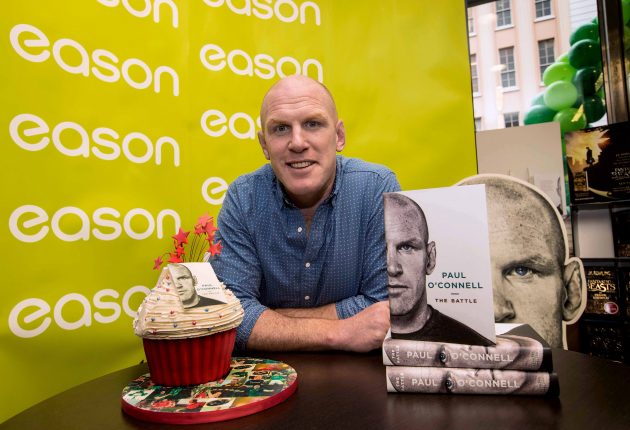Rugby World looks at the six contenders for this year's Sports Book Awards at Lord's
The contenders for Rugby Book of the Year
The annual Sports Book Awards exist to showcase outstanding sports writing and publishing. Launched in 2003 by the National Sporting Club, the concept has evolved into a prestigious televised awards dinner at Lord’s cricket ground each spring.
There’s been a Best Rugby Book category since 2008, when a panel of judges from the Rugby Union Writers’ Club decided to make the late and great Andy Ripley the inaugural winner for his intimate memoir detailing his battle with prostate cancer. Ripley’s moving acceptance speech remains an all-time highlight.
Last year’s recipient, Paul O’Connell for his autobiography The Battle, was the tenth rugby winner and brought back-to-back success for Ireland following Tom English’s award for No Borders in 2016. There will be no hat-trick, however, as this year’s shortlist – selected from books published in Britain and Ireland in 2017 – leans heavily on English and Welsh literature. Polaris, who published a book on the 1971 Lions, are based in Edinburgh.
This year’s ceremony takes place on 7 June. Here, Rugby World sums up the six contenders for the London Sporting Club Rugby Book of the Year, listed in alphabetical order…
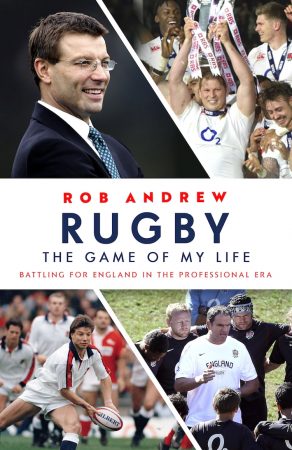
Rob Andrew: The Game of My Life, published by Hodder & Stoughton, RRP £20
Who knew politics could be so interesting? The former England and Lions fly-half is now in charge of Sussex cricket, but he signs off from rugby by charting the grim cycle of boardroom power plays, internal reviews and playing disasters that occurred during his decade upstairs at the RFU.
Andrew cut through the clutter to help forge a workable agreement between the union and Premiership clubs. The book, penned with the aid of Chris Hewett and David Norrie, also dedicates a sizeable rump to his 11 years at Newcastle Falcons, including a brilliant analysis of that superstar-in-waiting, Jonny Wilkinson.
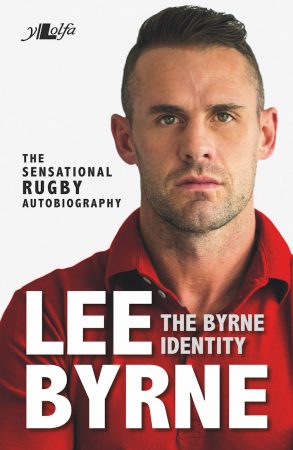
Lee Byrne: The Byrne Identity, published by Y Lolfa, £9.99
The literary equivalent of a drive with Lewis Hamilton. The Welshman whizzes through his 47-Test career, touching on everything from reckless betting and attempted extortion to dyslexia and depression.
Leaving school at 15 without any qualifications, Byrne seemed destined for a labourer’s life until being put on the path to rugby stardom by the Scarlets. His running lines, siege-gun boot and fitness made the full-back a key component of the successful ‘Warrenball’ rugby that Wales favoured for so long.
It’s a gripping book written in collaboration with Richard Morgan.
RUGBY BOOK OF THE YEAR WINNERS
2008 Ripley’s World – Andy Ripley (Mainstream)
2009 Seeing Red: Twelve Tumultuous Years in Welsh Rugby – Alun Carter and Nick Bishop (Mainstream)
2010 Confessions of a Rugby Mercenary – John Daniell (Ebury Press)
2011 The Grudge – Tom English (Yellow Jersey)
2012 Higgy – Alastair Hignell (Bloomsbury)
2013 The Final Whistle: The Great War in Fifteen Players – Stephen Cooper (History Press)
2014 City Centre – Simon Halliday (Matador)
2015 Beyond The Horizon – Richard Parks (Sphere)
2016 No Borders: Playing Rugby for Ireland – Tom English (Arena Sport)
2017 The Battle – Paul O’Connell (Penguin Ireland)

Man of his word: Simon Halliday picked up the rugby gong in 2014 for City Centre (Getty Images)

Commended: ex-Scotland star Kenny Logan’s book was shortlisted at the 2010 awards (Getty Images)
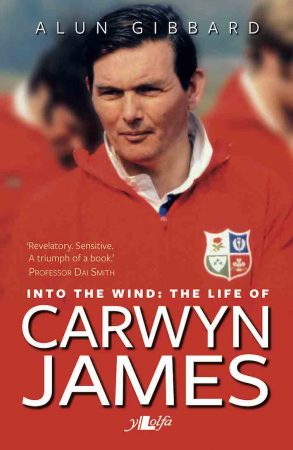
Into the Wind: The Life of Carwyn James, published by Y Lolfa, by Alun Gibbard, £14.99
In a near antithesis of the Byrne book, this biography of Carywn James is an epic read stretching to well over 400 pages. Author Alun Gibbard interviewed more than 100 people and provides the definitive profile of the visionary Welshman who masterminded the Lions’ only victorious series in New Zealand.
The book covers the four central strands of James’s life – literature, broadcasting, politics and rugby – and Gibbard isn’t afraid to highlight the contradictions in James’s complex personality. There are shades of Shakespearean tragedy about the coach’s sorry decline into alcoholism and his lonely death at 53.
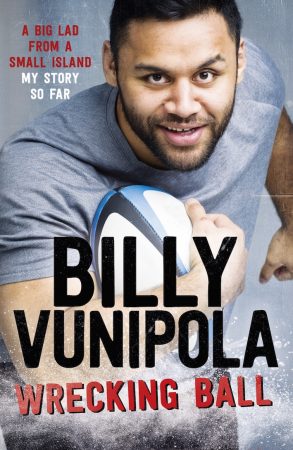
Billy Vunipola: Wrecking Ball, published by Headline, £20
This wonderful book, ghosted by Gershon Portnoi, focuses on Vunipola’s remarkable journey from the tiny Tongan village of Longo Longo to the Test stage via South Wales, Bristol, Harrow and Wasps.
Something of a wild child, we learn of a litany of misdemeanours, the ‘tough love’ of his parents and his eating problem that saw him weigh as much as 152kg (almost 24st) when turning professional. Nowadays he eats broccoli for breakfast and dates a dietician.
Feared and revered the world over, the mighty No 8 will be back in England’s colours on their summer tour following injury.
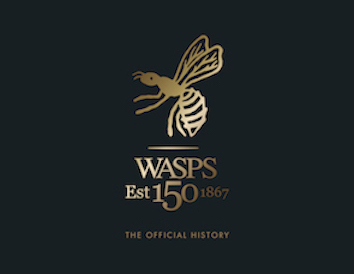
Wasps: The Official History, published by VSP, £25
Hot on the heels of Harlequins’ history, which was shortlisted at the Sports Book Awards last year, comes the official history of their one-time London rivals.
A joint effort by Barney Burnham, Marcus Williams and Duncan Jones, it relates the cherished memories and achievements of the club that allegedly failed to become an RFU founder member because their delegates went to the wrong pub. It’s comprehensive, beautifully presented and, unlike so many history books that get bogged down in minutiae, easy to read.

Flying the flag: Wasps supporters at the recent Premiership semi-final against Saracens (Getty Images)
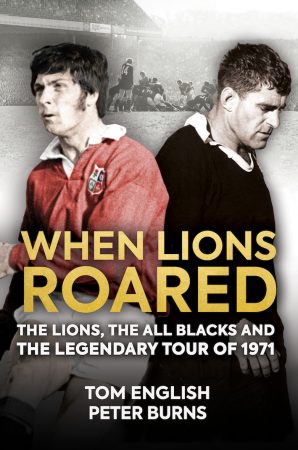
When Lions Roared, published by Polaris, by Peter Burns and Tom English, £17.99
Tom English pairs up with Peter Burns to bring us a blow-by-blow account of the 1971 Lions tour, when John Dawes and Co turned the history books upside down. It’s nostalgia at its finest, with the story told partly in the words of the players, All Blacks as well as Lions.
Discussion points include the violence of the Canterbury match, the casual genius of Barry John and the unforeseen consequences for world rugby – New Zealand went back to the drawing board and have dominated the ensuing four decades.





